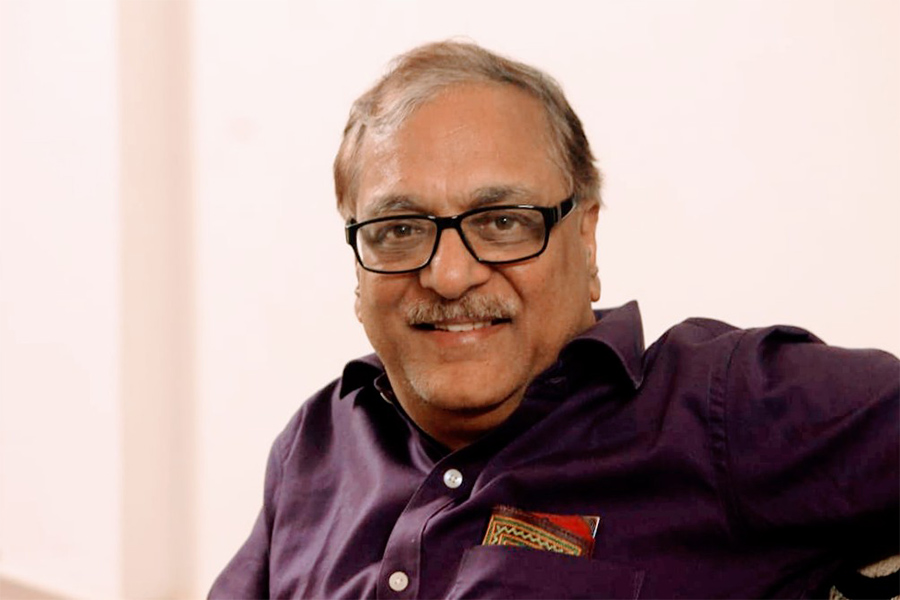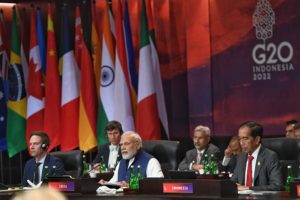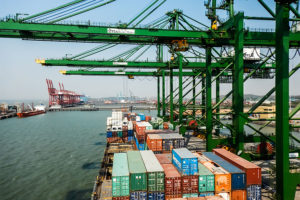Efforts to employ migrants can be linked to Aatmanirbhar Bharat
Professor Binod Khadria, South Asia Chair Metropolis Asia, and Former Professor of Economics, Education and Migration at Jawaharlal Nehru University opines that organisations need to come up with innovative solutions to solve India’s employment problem. Consistency of quality in Indian products is not at par with international standards. The rate of rejection is quite high since India often takes pride in a so-called culture of ‘jugaad’, i.e., short-cut solutions in the name of low-cost outcomes. This needs to be fixed and focus needs to be put not just on increasing the number of jobs in India but also on enhancing the quality-sensitive human capital embodied in the people holding these jobs.

IBT: What are the key markets for Indian immigrants in terms of employment? What kinds of jobs do they offer to Indian workers?
Prof. Binod Khadria: Indian diaspora and immigrants are found all over the globe depending on the kind of occupations available to them. For example, Malaysia, Singapore, Japan, South Korea, and, since more recent times, the Gulf have been since long the key markets for employment of large numbers of unskilled, semi-skilled, and medium-skilled workers from India . They used to work in sectors like construction, restaurants, drivers, catering and so forth.
However, even that has been changing over time. Now doctors, nurses, architects, lawyers and managers are also finding their way into the job markets of these countries. Then there are the masses of high-skilled workers including large numbers of Information Technology (IT) professionals finding employment in the global labour markets of the developed countries, particularly in the US, Canada, UK and the EU, Australia and New Zealand. However, you still have to look at which country is attracting what kind of workers, what are the sectors where there is a shortage of labour and accordingly how they fill up those gaps.
IBT: What are the conditions that overseas Indian workers are facing in other countries due to COVID-19? What other challenges are Indian emigrants facing abroad (ex. hostile visa policies)?
Prof. Binod Khadria: The first thing that happens in times of such unprecedented emergencies like COVID-19 is retrenchment. Immigrants are losing jobs, their contracts are not being renewed and they are being terminated even if their contracts have not ended. Even if some of them were retained, they are facing challenges like substantial pay cuts. This is because the demand for the company’s product is falling and so is the demand for labour services.
Further, owing to the national and international curbs on the movement of people, overall trade is falling. In the long term, it could have an impact on the remittances because savings of Indians abroad are hit, adversely affecting their capacities to send money to their families back home. As far as challenges faced by the highly skilled Indian emigrants are concerned, the US ban is a case in point since H-1B visas are not being processed and green cards are not issued. This has added to the visa backlogs.
IBT: Why are a significant number of Indian immigrants returning to the country? What repercussions will it have for the Indian economy?
Professor Binod Khadria: First, we need to understand who are the people coming back. Those individuals who have become citizens or permanent residents (PR) of those countries don’t have to come back. It is the temporary migrants who might have to come back.
Further, temporary migrants are not a single homogeneous category, among them too, there are different categories who are facing this risk or being forced to return. They may be forced to return to India either due to the host country’s legal policies or due to economic necessities.
For example, the unskilled workers who have lost their jobs don’t have the staying power to continue in the host country, which might have become too costly for them. This situation has forced them to return to the country.
Such a situation is bound to have repercussions. One consequence is that they are coming back home as unemployed people, and jobs are not available for them immediately. Further, due to the existence of a large number of job-seekers already in India’s population, those individuals who have returned are facing a hidden competition and their bargaining power in the job market is at a low. So, the employer tends to exploit them. This will take a toll by creating financial strain on their families. Also, conflict in their interpersonal relationships and instances of domestic violence have begun to spike.
IBT: How should these people be incorporated into the Indian job market?
Prof. Binod Khadria: This is where organizations need to become very innovative. One traditional option that needs to be explored is to encourage individuals to get into self-employment. This will have the trickle-down effect of creating employment for others. This, however, would take some time to yield results.
An innovative scheme with immediate effects would be to divide some full-time jobs into two shifts of part-time employment to maximum possible numbers, thereby “paying a shared wage to each one” but “leaving no-one behind”.
This would help ramp up demand for goods and services, thereby spurring production and consequently full-time full-wage employment opportunities in the country. This process should encompass the remote corners of the country through “ruralisation” and “semi-urbanisation” so that more and more people in the country could be incorporated in the pan-Indian job market.
IBT: Does India have the kind of blue-collar & white-collar jobs to accommodate them?
Prof. Binod Khadria: I don’t think that India has enough scope for accommodating them all in blue- & white-collar jobs. There are rigidities in the job market. These rigidities will take their own time to dissolve. A conducive environment needs to be created to offer people jobs that match their skills. We need to plan accordingly, keeping in mind that there will be mismatches which can be overcome by creating opportunities to learn newer skills on-the-job. This applies to both blue collar and white-collar jobs.
Sadly, the consistency in quality of Indian products is not at par with international standards. Their rate of rejection is quite high, since India has a so-called culture of ‘jugaad’ i.e., short-cut solutions in the name of low-cost outcomes. We have a quick fix for everything. We need to change this attitude and inculcate a non-compromising sense that something which is not of minimum standard would not come into the market. This draws attention to the fact that it is not only the quantity but also the quality of employment that matters. We need to have skilled professionals who would ensure 100 percent accuracy in quality control.
IBT: Which are the most popular areas where these returnees can find employment?
Prof. Binod Khadria: I think workers returning from abroad can be inducted into those sectors deserted by internal migrant workers who, in the wake of sudden announcement of lockdowns due to COVID-19 pandemic, have gone back to their villages.. Their return to their native towns has created a void where many of these immigrants can fit in.
In the long run, this has to be in coordination with the ‘Aatmanirbhar’ mission of self-reliance. While Indians and Indian companies have been the world leaders in software development, they lag behind in manufacturing.
Now a lot of industries and companies like Apple’s iPhone manufacturing units are relocating, and they are opening workplaces in India. Such units will need highly skilled as well as low and medium- skilled workers.
The Indian Government as well as some state governments have initiated skill profiling of the returnees. If accomplished correctly and continuously, this will probably become a long-term opportunity to have job-matching with the skills in the identified sectors. The governments can issue advisories for the firms to optimise this job-matching. For example, they can make a policy that 30% (or any other reasonable proportion) of those recruited by these firms should be returnees from abroad. They can also be employed as teachers and healthcare workers in these service sectors, which in any case require expansion.
IBT: What should be done to arrest the fall in remittances sent by Indian workers?
Prof. Binod Khadria: Measures need to be taken to provide incentives to the migrants staying back abroad for not cutting down on the remittances. We need to take fresh measures to first cut down the cost of remittances. Secondly, the interest rate offered on the remittance-driven savings has to be protected and possibly some extra higher rate of interest has to be offered on those saved in the Indian banks. This should help tap accumulated savings that are brought back by those migrant workers who are returning permanently and are intending to settle back in India. This I think will incentivise the reversal of reduction in remittances to some extent.
Professor Binod Khadria is South Asia Chair, Metropolis Asia; and Member, International Steering Committee, Metropolis International. Formerly he has been a professor of Economics of Education and International Migration at Jawaharlal Nehru University, New Delhi, where he was also the Chairperson of Zakir Husain Centre for Educational Studies, School of Social Sciences. He also held the inaugural ICCR Chair of Contemporary Indian Studies at Rutgers, the State University of New Jersey, USA in 2017-18.
Professor Khadria’s publications include The Migration of Knowledge Workers: Second-generation Effects of India’s Brain Drain (Sage, 1999), India Migration Reports 2009 and 2012 (Cambridge University Press), Indian Skilled Migration and Development: To Europe and Back (Springer 2014), and several research papers published by ILO, OECD, GCIM, IRD (France), IDE-JETRO (Japan), Harvard International Review, etc. More recently, he co-edited The Sage Handbook of International Migration (Sage, London 2019), and The World Migration Report 2020, the Biennial of IOM, the UN Migration Agency. He may be contacted at: bkhadria@gmail.com













Leave a comment